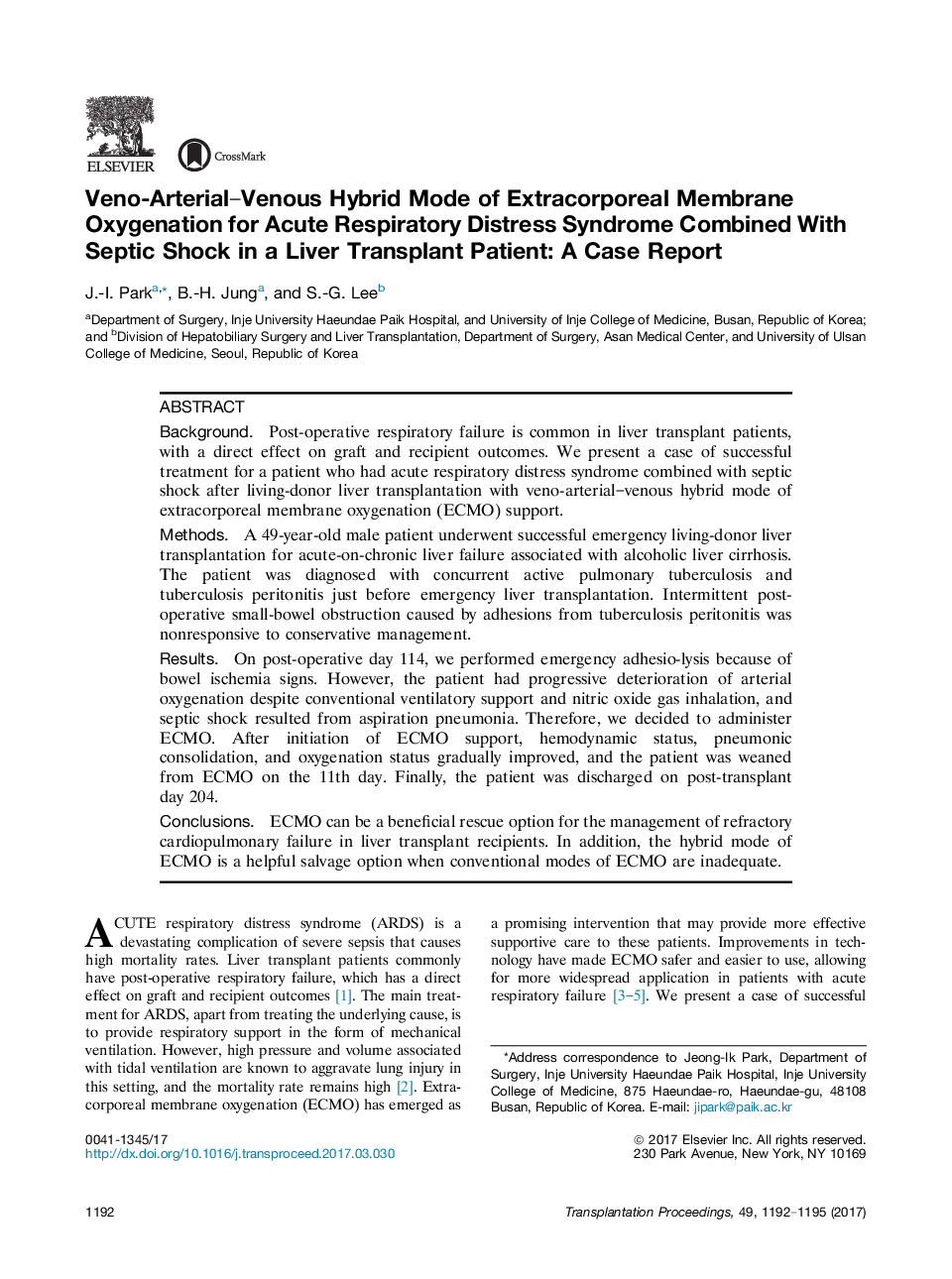| Article ID | Journal | Published Year | Pages | File Type |
|---|---|---|---|---|
| 5728827 | Transplantation Proceedings | 2017 | 4 Pages |
BackgroundPost-operative respiratory failure is common in liver transplant patients, with a direct effect on graft and recipient outcomes. We present a case of successful treatment for a patient who had acute respiratory distress syndrome combined with septic shock after living-donor liver transplantation with veno-arterial-venous hybrid mode of extracorporeal membrane oxygenation (ECMO) support.MethodsA 49-year-old male patient underwent successful emergency living-donor liver transplantation for acute-on-chronic liver failure associated with alcoholic liver cirrhosis. The patient was diagnosed with concurrent active pulmonary tuberculosis and tuberculosis peritonitis just before emergency liver transplantation. Intermittent post-operative small-bowel obstruction caused by adhesions from tuberculosis peritonitis was nonresponsive to conservative management.ResultsOn post-operative day 114, we performed emergency adhesio-lysis because of bowel ischemia signs. However, the patient had progressive deterioration of arterial oxygenation despite conventional ventilatory support and nitric oxide gas inhalation, and septic shock resulted from aspiration pneumonia. Therefore, we decided to administer ECMO. After initiation of ECMO support, hemodynamic status, pneumonic consolidation, and oxygenation status gradually improved, and the patient was weaned from ECMO on the 11th day. Finally, the patient was discharged on post-transplant day 204.ConclusionsECMO can be a beneficial rescue option for the management of refractory cardiopulmonary failure in liver transplant recipients. In addition, the hybrid mode of ECMO is a helpful salvage option when conventional modes of ECMO are inadequate.
